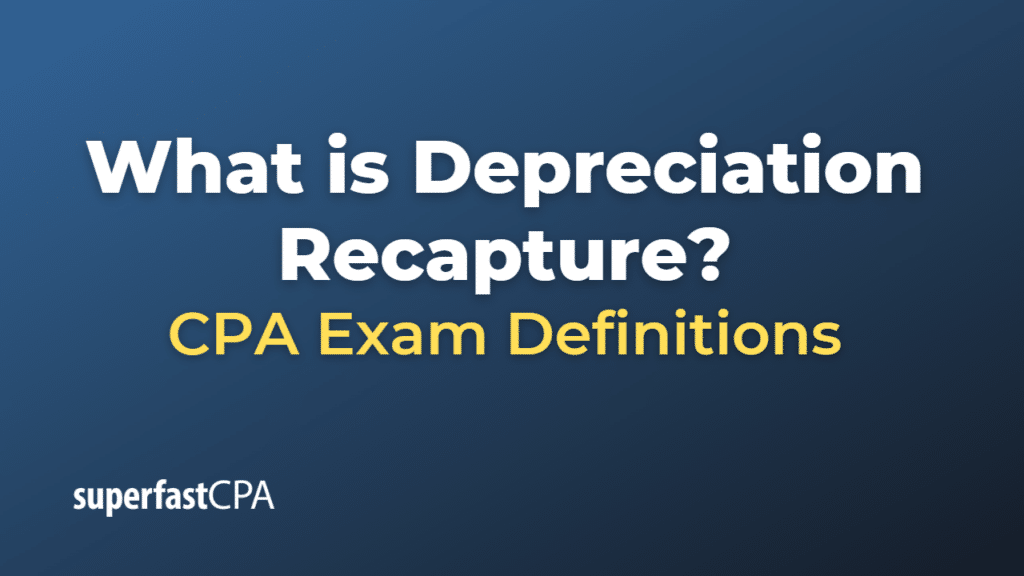Depreciation Recapture
Depreciation recapture is a tax provision that allows the IRS (Internal Revenue Service) to collect taxes on the gain realized from the sale of a depreciated capital property for an amount above the adjusted cost basis (the original cost minus accumulated depreciation).
When a business depreciates a capital asset, it reduces its taxable income over the asset’s useful life. However, if the asset is later sold for a price that’s higher than its depreciated value (also known as its book value), the IRS treats the excess as income that has to be recaptured. This “recaptured” amount is subject to tax at a special depreciation recapture rate.
Example of Depreciation Recapture
Let’s take a detailed example to understand how depreciation recapture works:
Imagine a business purchases a piece of equipment for $100,000. This equipment is expected to have a useful life of 10 years, after which its value would be reduced to zero (no salvage value). For simplicity, let’s assume the business uses straight-line depreciation, depreciating $10,000 per year.
After 5 years, the business has claimed $50,000 ($10,000 * 5) in depreciation. At this point, the equipment has an adjusted cost basis or book value of $50,000 ($100,000 original cost – $50,000 depreciation).
Now suppose the business sells the equipment at the end of year 5 for $60,000. The sale price is $10,000 more than the book value of the equipment. This $10,000 is subject to depreciation recapture.
The IRS treats this $10,000 as ordinary income and taxes it at the depreciation recapture rate, which as of my knowledge cutoff in September 2021 is up to 25% in the United States, depending on your tax bracket. The idea is that since the company claimed depreciation expenses to reduce its taxable income in the past, it now has to pay some of that back because it sold the asset for more than its depreciated value.
It’s also worth noting that if the equipment had been sold for less than its book value, there would be no depreciation recapture. Instead, the company might recognize a capital loss, which could be used to offset other capital gains.













